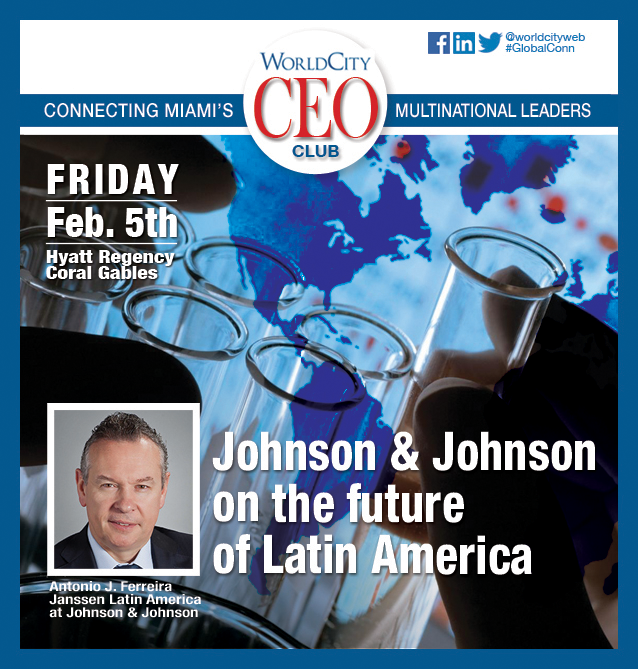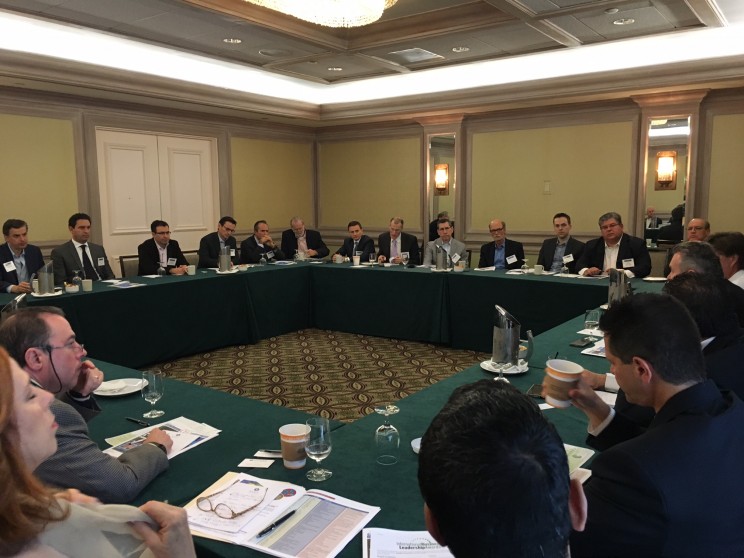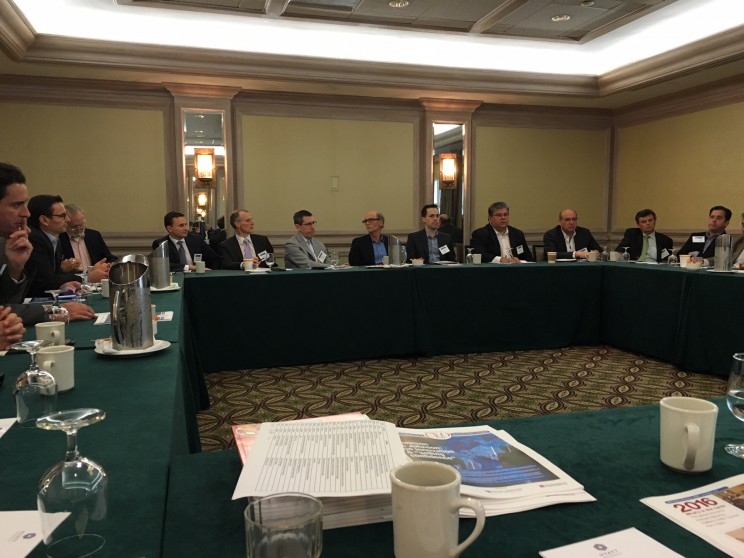Selling pharmaceuticals in Latin America: Johnson & Johnson’s view
Despite challenges from red tape to patent infringement, Latin America offers good opportunities to boost sales of pharmaceuticals, and Johnson & Johnson is committed to the region “for the long term.”
That was the word from Antonio Ferreira, Johnson & Johnson’s International Vice President for Janssen Latin America, at WorldCity’s CEO Club meeting held Feb. 5, 2016, in Coral Gables.
Latin America’s burgeoning population and expanded middle class portend strong demand for new and existing pharma products, especially for treating diseases like diabetes, obesity and cancer, Ferreira told the group.
Founded in 1886, J&J now is one of the world’s leading manufacturers of health care products, operating in 60 countries and reporting more than $74 billion in sales in 2014. The company has three segments: consumer products (including over-the-counter medications), medical devices and pharmaceuticals. Pharmaceuticals account for 45 percent of its overall business, and J&J invests $9 billion a year to develop and test new drugs.
From Miami, Ferreira handles the strategic direction, talent development and execution of global and regional strategies for the pharmaceuticals group in Latin America and the Caribbean. He builds on J&J operations that started in Mexico in 1930 and Argentina in 1937. He joined the company in Portugal in 1981.
The pharma business differs from others in the longer time and larger investment needed to develop, test and obtain government approval for new drugs, Ferreira said. New pharmaceuticals can take a decade to reach market – compared to five years for medical devices, and the drugs can require billions of dollars in investment.
“Latin America usually follows what happens in the U.S. and Europe,” he told the group. It sometimes takes 18 to 36 months to launch a new drug in the region, even after it’s been approved and used elsewhere. “Government regulators in Latin America often have very creative minds and ask for things that no other countries worry about.”
Once a drug starts selling, big producers face a constant threat of patent infringement in the region, Ferreira said.
Heading off patent infringement: Sue, acquire or partner with other producers?
“We launched a new patented drug for prostate cancer in Argentina three or four years ago,” he said. “A few months later, there was a generic version on the market. When we checked the official records, we found that the copy had been officially approved before our own drug. You have to live with it. Then you have to explain…to headquarters.”
Of course, multinationals can sue or buy out local rivals in Latin America to remedy that type of problem, but legal cases often get mired in red tape. Ferreira said in one instance, J&J had to sue twice in local courts before it obtained a judgment against a company that copied its drug. And payment of compensation can take years longer – coming possibly after patents expire.
Partnerships with local companies may offer an alternative to lawsuits, but in some instances, multinationals are reluctant to share highly sophisticated technology with local partners, he added.
Pricing also raises concerns in the region. While pharmaceutical companies can obtain price increases in the United States, prices in Latin America are often frozen for years and sometimes are rolled back, he said.
Business in Cuba: Will drug companies need to partner with Cuban entities?
Asked about opportunities in Cuba, Ferreira said the island offers “interesting” challenges. Despite the continuing U.S. embargo on most U.S. business on the communist-led nation, some of J&J’s drugs are already available in Cuba – either smuggled in or supplied by non-governmental organizations for compassionate purposes.
But J&J and other U.S. pharmaceutical companies are studying the government rules carefully, as U.S.-Cuba relations thaw. They’re watching to see, for example, if drug companies will be obliged to work with local partners there.
The February meeting featured top executives from Abbott, Citrix, Diageo, Discovery Networks, Kroll, Kuehne + Nagel, Novartis, Right Management and other multinationals.
The CEO Club is one of four event series offered by media company WorldCity to bring together executives from greater Miami to discuss international business topics. The CEO series is sponsored by the University of Miami School of Business Administration, The Conroy Martinez Group and Berkowitz Pollack Brant.
The next CEO Club meeting is set for March 4.


